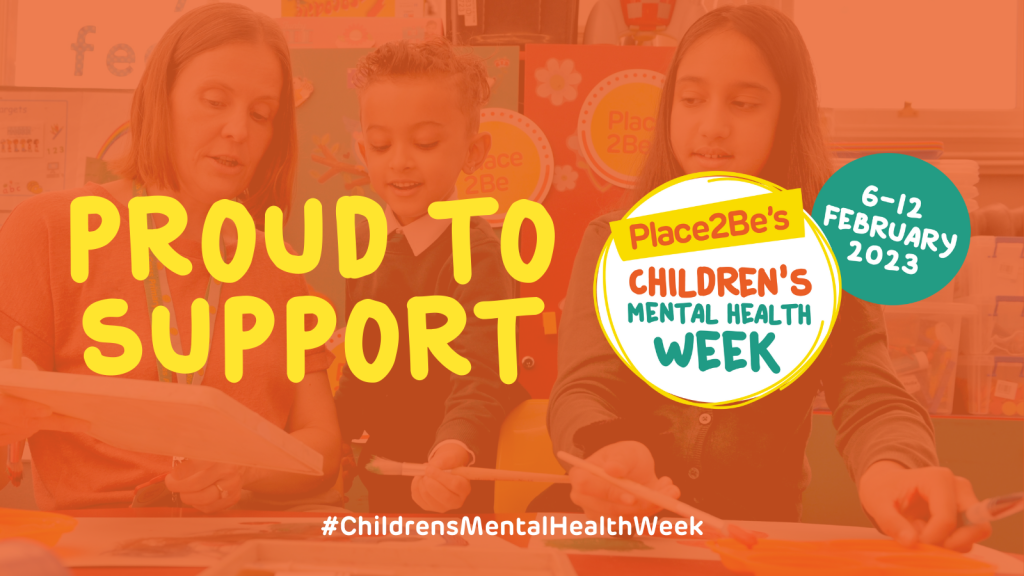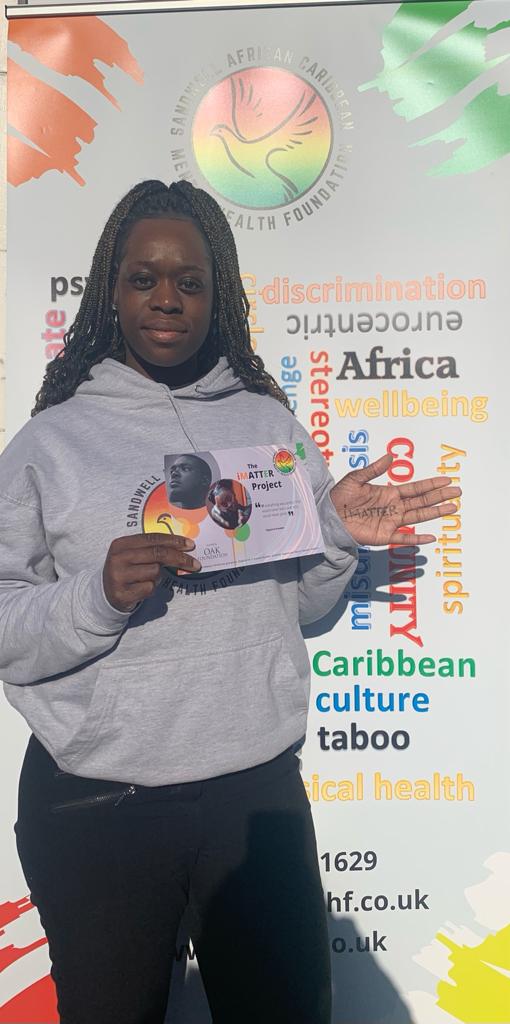News

In need of support? Call us now on +44(0)121 525 1629

Children’s Mental Health Week takes place from 6th -12th February 2023. It is an opportunity for schools and charities, like ourselves, who work with young/vulnerable children – to spread the word and let the wider community know and understand the impact of children’s mental health. We caught up with Rebecca, who is the Youth Service Coordinator for the iMATTER Youth Service here at Sandwell African Caribbean Mental Health Foundation (SACMHF) to hear why Children’s Mental Health Week is important to her.

Q1 Can you tell me about the iMatter Service i.e. (how long it’s been running, how many service users we have the age range, what you do on a day to day basis etc).
The iMatter youth service began in April 2022. The service was established to offer support, guidance and advice to children and young people who suffer with mental health issues, across the Sandwell Borough. We support children from the ages of 11 -25 offering them culturally sensitive and bespoke support packages designed to guide them through to longer periods of wellness.
We support children and young people suffering from functional mental health issues from depression and anxiety to psychoses and recognise that everyone’s journey may be different. Some may require weekly support, some daily, some even prefer telephone support due to suffering with social anxieties. Our ultimate goal is for them to become well having developed a greater degree of emotional resilience and coping strategies, so we will work with them to establish where they are and where they would like to be. The timeframe is very much dependant on their needs, and we invest the time for this process to happen authentically over time.
Currently we are supporting around 27 young people in different ways such as face to face at the centre, home visits, outreach visits, in the community, telephone support only. We also work with local schools and colleges and the job centre offering workshops on subjects, including anxiety, depression, online safety and body image. We recognise that support for a child/ young person may not be the same as another and we try to embrace inclusive working with positive family members around the them. The focus is placed on what works for that child/ young person, and is often in consultation with their families, Carers and professionals depending on their age and circumstances.
Q2. How important is Children’s Mental Health Week to you and raising awareness of how we can best support children and their mental health?
Children’s mental health week is extremely important for anyone who has or works with young people. It is extremely important to me because I feel that anyone who has or works with children and young people should be aware of how pertinent mental health currently is, which has been greatly impacted by environmental factors such as Covid-19.
The best way that we can support children begins with listening and being observant. Mental health can present in many ways with children and young people, it is important to pay attention to those around you. Children need to be offered time, attention, guidance, and knowledge, this is not only at home, but in the school and community settings also. If you personally cannot offer help of support, we should be identifying services like iMatter who may be able to help, I would urge all child practitioners/ professionals to be alert to signs such as changes in behaviour with a child or young person and to work within a multiagency approach, to offer a robust package of support for that child or young person.
Q3. The theme this year is ‘Let’s connect’ how does the iMatter service ensure that they connect with children and their mental health/wellbeing?
We are trained in peer support and as we deliver group workshops, we use this platform to encourage children and young people to build on their friendships, develop new ones and use peer support to create supportive social networks where they can provide support or encourage them to seek more professional support when they are not feeling well. The theme fits in well with our service offer. We do encourage the young people that we work with to express how they are feeling to someone who they can trust. Our mental health campaign is #letitout
Q4. The best advice to give to a parent/teacher or anyone dealing with a child who is showing signs of mental health?
If you have a reasonable or a good relationship with the child, please try and talk to them first and listen to what is bothering them. Alternatively, I would advise arranging a TAC (Team Around the Child) meeting to discuss what support package you can put in place for them. This includes identifying other services that need to be involved. These would be the first steps.
Q5. What can we expect from some of the workshops etc. the iMatter project runs in schools?
The workshops have been designed for groups of children from 11 years old upwards. Each topic compromises a small amount of theory/ factual information, some case studies, and examples, and lots of group activities and discussion. We recognise that we all learn differently, and wanted to consider possible mixed abilities of those we are delivering to. Our plan is to reach as many Schools as possible across Sandwell in the next 12 months.